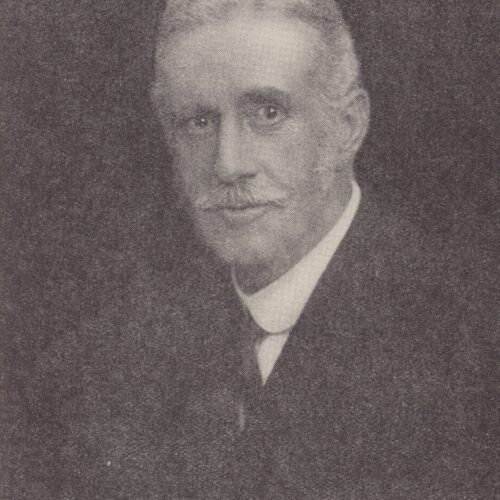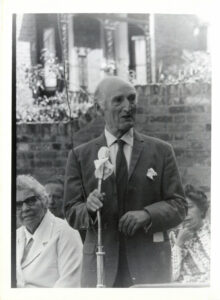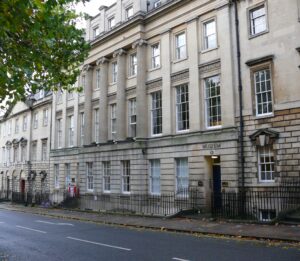

We have the faculties for gaining knowledge; and Rationalism will always maintain that we are at liberty to use them to the full extent of our power. It will always stand for Reason; it will always stand for Knowledge; it will always stand for Liberty.
Charles T. Gorham, A Plain Man’s Plea for Rationalism (1919)
Charles Turner Gorham was one of the founders of the Rationalist Press Association, becoming director of the R.P.A. and acting as its secretary for 15 years. A writer and poet, he was actively involved in the early humanist movement in other ways too, writing works on ethics, religion, and rationalism, and helping to edit the publications of the Ethical movement. Gorham’s obituary in The Literary Guide is reproduced below, along with part of the address delivered by humanist F.J. Gould at Golders Green Crematorium.
From: The Literary Guide, July 1933
He was gifted with a facile pen, and, though he was uncompromising in his advocacy, he never gave serious offence to his opponents. To the inner circle particularly he was a beloved companion, and even by those who knew him somewhat less intimately he will be remembered as a charming and delightful friend.
The Literary Guide, July 1933
It was only three days after the death of Mr. [Frederick] Millar that news reached us of the passing of Mr. Charles T. Gorham, for fifteen years the much-esteemed Secretary of the Rationalist Press Association. He had been ill for a considerable time, and death came as a happy release. The great world little knows what it owe to Mr. Gorham for his almost life-long services in “the best of causes,” but readers of this journal are not likely to forget his contributions to its pages or the many challenging brochures which emanated from his fertile brain. He was gifted with a facile pen, and, though he was uncompromising in his advocacy, he never gave serious offence to his opponents. To the inner circle particularly he was a beloved companion, and even by those who knew him somewhat less intimately he will be remembered as a charming and delightful friend. To Mrs. Gorham and her son and daughter, who survive him, the deepest sympathy will be extended by all our readers.
AT Golders Green Crematorium on Friday, June 9, a numerous company listened to an address by Mr. F. J. Gould, from which the following passages are taken:—
But it is joyously easy to describe this life of seventy-seven years. It is like looking at a face lit by the sun; the open face of the Plain Man, the Neighbour, the Humanist.
One of the books written in simple, lucid, strong English by the hand that now lies so still was called A Plain Man’s Plea for Rationalism. A Plain Man! In his youth he was an honestly orthodox Christian. Later years saw him as a fighter against the Christian theology, and all other theology; enthusiastic debater; writer of many ardently critical pages against Churches and bigotries. But it is joyously easy to describe this life of seventy-seven years. It is like looking at a face lit by the sun; the open face of the Plain Man, the Neighbour, the Humanist.
The American poetess (E. W. Wilcox) earned his smiling thanks by her homely appeal
So many Gods, so many creeds,
So many paths that wind and wind,
When just that art of being kind
Is all this sad world needs.
(This verse and Leigh Hunt’s Abou ben Adhem were read by the speaker because, shortly before his death, Gorham had delighted in hearing his wife recite them.)
All his articles and books expressed two zeals, two motives—on the one hand, resolute disdain for dogmatic and irrational Bible-worship… and, on the other hand, ready appreciation of an unfolding towards the Best, and of the heroic prophets of moral and intellectual evolution. Gorham’s aggression was unfaltering. So was his constructive Humanism.
What could be more natural than that he, who so usefully co-operated in the launching of the Rationalist Association in 1899, should in due time, and in most fitting succession to our honoured comrade, Charles E. Hooper, labour—and labour so cordially—as R.P.A. Secretary? Those who met him during his busy fifteen years of office—Londoners, provincials, friends from oversea—saluted in him the prompt and methodical Secretary, and the propagandist whose glance flashed sincerity and forthrightness. In him they beheld the Plain Man, and the untiring enemy of ideas outworn, pretentious, narrow, sectarian. All his articles and books expressed two zeals, two motives—on the one hand, resolute disdain for dogmatic and irrational Bible-worship, for the cruelty of Inquisitions, for ill-founded faith in an Easter Resurrection; and, on the other hand, ready appreciation of an unfolding towards the Best, and of the heroic prophets of moral and intellectual evolution. Gorham’s aggression was unfaltering. So was his constructive Humanism. We can quite understand why Gorham so actively assisted, in 1917-1919, in editing the organ of the Ethical Movement, The Humanist. (Quotations from Mr. Gorham’s poems followed.)
Perhaps when he cried aloud to the ‘Universal Man’ he uttered his noblest imagination. He stretches forth his hands to the Genius of the Race of which we are all children. And to this Humanity he exclaims:—
…In stern toil alone
Lies man’s redemption from the curse of pain
Himself has earned. Himself must break the chain.
For man and man’s thoughts are but part of Thee!
And all his wisdom, all his strength, must be
Drawn from Thy heart, made active by his own;
No virtue lies in trusting the unknown!
Man’s aim all things above
Is greater knowledge, greater love
Of that unending wealth thou hast in store
For those who seek Thy temple.
It was a very happy and obvious logic that led so many of us, seven years ago, to meet and acclaim in celebration of his seventieth birthday. We tendered our profound appreciation of his life and activity and service. When he returned thanks no small part of his speech was a fraternal ‘aside’ in praise of John M. Robertson, of Charles A. Watts, and of the helpful assistants in the R.P.A, office. That birthday assembly closed as with a little homely and musical benediction when his wife said to us all: ‘I have a very good husband; thank you all very much for being so kind to him.’ Her voice and her consolation were for him, in the final days and years of his physical weakness, a message from that living poetry which transcends our science and philosophy; or, rather, the poetry which consecrates our science and philosophy, and consecrates the highest achievements of our reason, our courage, and our research.

This article was written for Humanist News by Harold Blackham, who is viewed today as the architect of the modern […]

…for the Promotion and Advancement of Science, Literature and Art Trust deed of the Bath Royal Literary and Scientific Institute […]

June suns, you cannot store them To warm the winter’s cold, The lad that hopes for heaven Shall fill his […]

Robert Owen, the son of a Newtown saddler and ironmonger, became one of the most successful mill owners of the […]